Air Chief Marshal Sir John Alexander Carlisle Aiken, was a senior Royal Air Force (RAF) officer, and the Commander of British forces in Cyprus at the time of the Turkish invasion of the island in 1974.

Marshal of the Royal Air Force Sir Andrew Henry Humphrey, was a senior officer in the Royal Air Force. He fought in the Second World War as a fighter pilot taking part in the Battle of Britain and also took part in the withdrawal from Aden in November 1967. He served as the Chief of the Air Staff advising the new Labour Government on the implementation of their latest Defence Review. He then served as Chief of the Defence Staff but caught pneumonia within three months of taking office and died shortly afterwards.

Marshal of the Royal Air Force Sir William Forster Dickson,, was a Royal Naval Air Service aviator during the First World War, a senior officer in the Royal Air Force during the inter-war years and a Royal Air Force commander during and after the Second World War. Dickson was Chief of the Air Staff in the mid-1950s, in which role his main preoccupation was the establishment of the V Force and the necessary supporting weapons, airfields and personnel. He also served as the first Chief of the Defence Staff in the late 1950s.

Marshal of the Royal Air Force Sir Dermot Alexander Boyle, was a senior officer in the Royal Air Force. He served in the Second World War initially as a staff officer with the Advanced Air Striking Force in Reims in which capacity he organised the evacuation of the Force through Brest in May 1940. His war service included tours as a bomber squadron commander, as a station commander and also as an air group commander. He was Chief of the Air Staff in the late 1950s and, in that role, deployed British air power during the Suez Crisis in October 1956 and defended the RAF against the views of Duncan Sandys, the Minister for Defence, who believed that the V bomber force rendered manned fighter aircraft redundant.
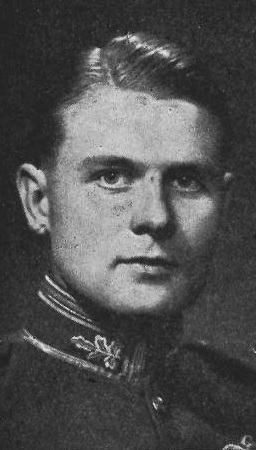
Marshal of the Royal Air Force Samuel Charles Elworthy, Baron Elworthy, was a senior officer in the Royal Air Force. He served as commander of a squadron of Blenheim bombers and then as a station commander during the Second World War. He became Chief of the Air Staff in the mid-1960s and implemented the cancellation of the TSR-2 strike aircraft and the HS681 military transport aircraft programmes. He also became Chief of the Defence Staff in which role he oversaw the evacuation from Aden in November 1967 and had to respond to the growing crisis in Northern Ireland in the late 1960s.

Marshal of the Royal Air Force Sir John Grandy, was a senior officer in the Royal Air Force. He was the only officer who fought and commanded a squadron during the Battle of Britain to reach the post of Chief of the Air Staff. In the latter role he implemented the final stages of the RAF's withdrawal from the Persian Gulf and the Far East, oversaw the ordering and subsequent cancellation of the F-111 strike aircraft and handed over Britain's nuclear deterrent role to the Royal Navy.

Marshal of the Royal Air Force Neil Cameron, Baron Cameron of Balhousie, was a senior officer in the Royal Air Force. He fought in the Second World War as a fighter pilot taking part in the Battle of Britain, the Battle of Alam el Halfa, the First Battle of El Alamein and the Second Battle of El Alamein and then in operations in Burma. He served as Chief of the Air Staff in the late 1970s advising the British Government on the reinforcement of the British garrison in Belize which was under threat from Guatemala at the time. He also served as the Chief of the Defence Staff at the end of the 1970s in which role he secured pay comparability for services personnel involved in civil support during the firemen's strike, visited the People's Republic of China and lectured extensively on the Soviet air threat.
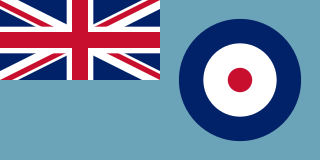
The Air Member for Personnel (AMP) is the senior Royal Air Force officer who is responsible for personnel matters and is a member of the Air Force Board. The AMP is in charge of all aspects of recruiting, non-operational flying and ground training, career management, welfare, terms, and conditions of service, and resettlement for RAF regular, reserve, and civilian staffs worldwide.
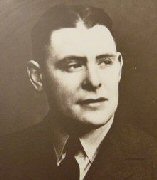
Air Marshal Sir John Rowlands, was a senior Royal Air Force commander and a recipient of the George Cross for his work in bomb disposal during the Second World War. He later worked in the development of Britain's nuclear weapons programme.
No. 22 Group is one of six groups currently active in the Royal Air Force, falling under the responsibility of Deputy Commander-in-Chief (Personnel) in Air Command. Its previous title up until 2018 was No. 22 (Training) Group. It is responsible for RAF training policy and controlling the Royal Air Force College and the RAF's training stations. As such, it is the direct successor to Training Group.

Air Vice-Marshal William Hopton Anderson, was a senior commander in the Royal Australian Air Force (RAAF). He flew with the Australian Flying Corps in World War I, earning the Distinguished Flying Cross and the Belgian Croix de guerre, and leading Nos. 3 and 7 Squadrons. Anderson commanded the Australian Air Corps during its brief existence in 1920–21, before joining the fledgling RAAF. The service's third most senior officer, he primarily held posts on the Australian Air Board in the inter-war years. He was appointed a Commander of the Order of the British Empire in 1934, and promoted to air commodore in 1938.

The Royal Air Force College (RAFC) is the Royal Air Force military academy which provides initial training to all RAF personnel who are preparing to become commissioned officers. The College also provides initial training to aircrew cadets and is responsible for all RAF recruiting along with officer and aircrew selection. Originally established as a naval aviation training centre during World War I, the College was established as the world's first air academy in 1919. During World War II, the College was closed and its facilities were used as a flying training school. Reopening after the War, the College absorbed the Royal Air Force Technical College in 1966.
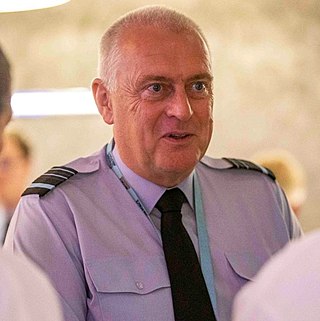
Air Marshal Sir Barry Mark North, is a retired senior Royal Air Force officer, who served as Deputy Commander (Personnel) at RAF Air Command. A helicopter pilot, North has held command appointments at all levels, notably No. 78 Squadron in the Falkland Islands, the Special Forces Flight as a squadron leader and the newly established No. 83 Expeditionary Air Group in the Middle East as an air commodore.
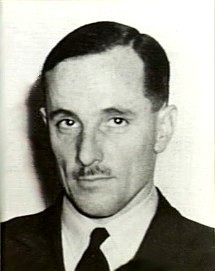
Air Vice-Marshal Joseph Eric Hewitt, CBE was a senior commander in the Royal Australian Air Force (RAAF). A Royal Australian Navy officer who transferred permanently to the Air Force in 1928, he commanded No. 101 Flight in the early 1930s, and No. 104 (Bomber) Squadron RAF on exchange in Britain shortly before World War II. Hewitt was appointed the RAAF's Assistant Chief of the Air Staff in 1941. The following year he was posted to Allied Air Forces Headquarters, South West Pacific Area, as Director of Intelligence. In 1943, he took command of No. 9 Operational Group, the RAAF's main mobile strike force, but was controversially sacked by the Chief of the Air Staff, Air Vice Marshal George Jones, less than a year later over alleged morale and disciplinary issues.
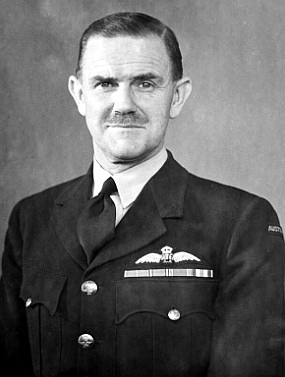
Air Vice Marshal Francis Masson (Frank) Bladin, was a senior commander in the Royal Australian Air Force (RAAF). Born in rural Victoria, he graduated from the Royal Military College, Duntroon, in 1920. Bladin transferred from the Army to the Air Force in 1923, and learned to fly at RAAF Point Cook, Victoria. He held training appointments before taking command of No. 1 Squadron in 1934. Quiet but authoritative, he was nicknamed "Dad" in tribute to the concern he displayed for the welfare of his personnel.
The Royal Air Force Medical Services is the branch of the Royal Air Force that provides health care at home and on deployed operations to RAF service personnel. Medical officers are the doctors of the RAF and have specialist expertise in aviation medicine to support aircrew and their protective equipment. Medical officers also carry out Aeromedical evacuations, providing vital assistance on search-and-rescue missions or emergency relief flights worldwide.
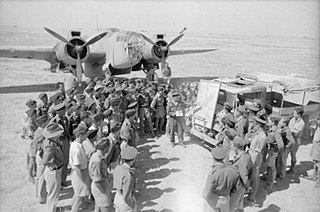
Air Chief Marshal Sir Peter de Lacy Le Cheminant, was a senior commander of the Royal Air Force (RAF), who served as Vice-Chief of the Defence Staff from 1974 to 1976 and Deputy Commander-in-Chief of Allied Forces Central Europe from 1976 until his retirement in 1979.
Air Vice Marshal Francis Frederic Inglis, was an officer in the Royal Air Force who became the head of RAF Intelligence Staff during the Second World War, reporting to Winston Churchill. In 1942 he was sent to America, where he successfully persuaded President Franklin D. Roosevelt to direct the main American war effort against Germany rather than Japan.
Air Vice Marshal Peter John Harding, was a senior Royal Air Force officer who served as Defence Services Secretary from 1994 to 1998.

Air Vice Marshal Christina Reid Elliot, is a retired senior Royal Air Force officer.














